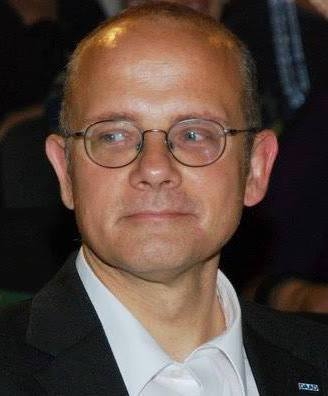Since the Orange Revolution of 2004, Ukraine has become increasingly salient in pan-European politics, taking center-stage in the relations between Russia and the West. Western institutions have, in their turn, become important factors in Russian-Ukrainian relations. The OSCE and PACE played a major role in the Orange Revolution, which has soured Russian-Ukrainian relations. Talks between Kiev and Brussels about Ukrainian participation in NATO's Membership Action Plan have increased tensions in both Russian-Western and Russian-Ukrainian relations. During the current gas conflict, the EU has pressured Ukraine into a seemingly pragmatic solution for the dispute about Russian gas deliveries to southern, central and western Europe via Ukraine. Neutral observers sent by the EU will assess whether Ukraine is siphoning Russian gas or not. As a result, energy from Russia will soon again arrive regularly to Russia's customers in Europe.
Unfortunately, that is by far not the whole story about this Eastern Slavic quarrel. Contrary to the Kremlin's rhetoric, the conflict between Russia and Ukraine is of larger proportions that go beyond purely economic issues. The gas dispute is an integral part of a deeper confrontation between Europe's two largest countries. As the EU appears to be helping to solve the energy dispute between Ukraine and Russia, Western Europe is becoming involved in a major post-Soviet conflict about identity, territory and power.
At no time before the collapse of the Soviet Union in 1991 has Ukraine been an independent state. During most of its history, much or all of Ukrainian territory was controlled from Moscow--whether by the Tsars or the Communist Party of the Soviet Union secretaries. Kiev is the cradle of all three of the Eastern Slavic nations: Ukrainians, Belarusians and Great Russians. As many of the latter perceive Ukraine as a part of Russia and the West as anti-Russian, they observe Ukrainian-Western rapprochement with suspicion, if not hostility. Russian elites see Ukraine as lying within their legitimate sphere of interests, and deny Kiev full sovereignty. The Ukrainian elites seek sustainable independence above all from Russia, and a way for Ukraine into the European Union. The most complicated issue in Ukrainian-Russian relations is the beautiful Black Sea peninsula of Crimea. Not only are most inhabitants of the Crimea ethnic Russians, but the peninsula's largest city, Sevastopol, is the port of the Russian Black Sea fleet. These are only the most important of the various issues that will complicate Russian-Ukrainian relations for many years to come.
So far, one of the reasons that these complications have, in contrast to similar standoffs in Moldova or in the Caucasus, not escalated, was that Russia and Ukraine were in a relationship of mutual dependence. Whereas Ukraine is dependent on Russian gas and oil, Russia depends on Ukraine's cooperation in the transportation of its energy resources to its major clients in the EU. This created a healthy balance in Russian-Ukrainian relations. For instance, Moscow might have been interested in using its influence among the population of Crimea to broach the issue of the peninsula's separation from Ukraine, following the model of Russian support for separatism in the Georgian provinces of Abkhazia and South Ossetia. But until recently, Kiev would have retaliated against any such attempts by way of threatening to suspend gas deliveries from Russia to the West.
With the arrival of EU observers at gas pumping stations on the Russian-Ukrainian border, the mutual interdependence of Russia and Ukraine will be weakened. Now the issue of gas deliveries from Russia to the EU will be less intertwined with other aspects of Ukrainian-Russian relations. That is, of course, exactly what not only Russia, but the West wanted, as citizens of the EU have become hostages to the difficulties of the two former Soviet republics. The intentions of this deal are similar to the motivations behind Gerhard Schroeder's Nordstream project (the Russian-German gas pipeline being currently built in the Baltic Sea, thus circumventing the East European transit corridor).
But is giving Russia more freedom of movement in Eastern Europe and in its relations with Ukraine in particular really in the interests of the EU and of the West as a whole? The last eight years have seen a constant deterioration of Russian-Western relations--one major issue being Russia's various claims concerning countries of its former empire in Eastern Europe, the Caucasus and Central Asia. The presence of international monitors at Ukrainian pumping stations will weaken Russian dependence on Ukraine's compliance with its transportation obligations. The EU monitors' observance of Ukrainian suspension of gas deliveries would immediately transform the formerly Ukrainian-Russian conflict into a standoff between Ukraine and the EU.
Without doubt, this will serve the observation of international law and the interests of the citizens of the EU. However, the people who will reap the largest benefits from EU presence on the Ukrainian-Russian border will be hard-nosed neo-imperialists in Moscow. Their purposeful manipulation of ethnic tensions in Georgia during the last years, as well as Moscow's disproportionate response to Tbilisi's use of force in South Ossetia, have shown that the Russian leadership has little interest in international law. Moscow's partial sabotage of the work of the Council of Europe's most important institution, the European Court for Human Rights, has shown that the Kremlin leadership is not interested in serious pan-European cooperation. The EU's latest initiative will provide Moscow with a trump card in the conduct of its future relations with Kiev.
(Originally published in Russia Profile at click here on 14 January 2009.)





